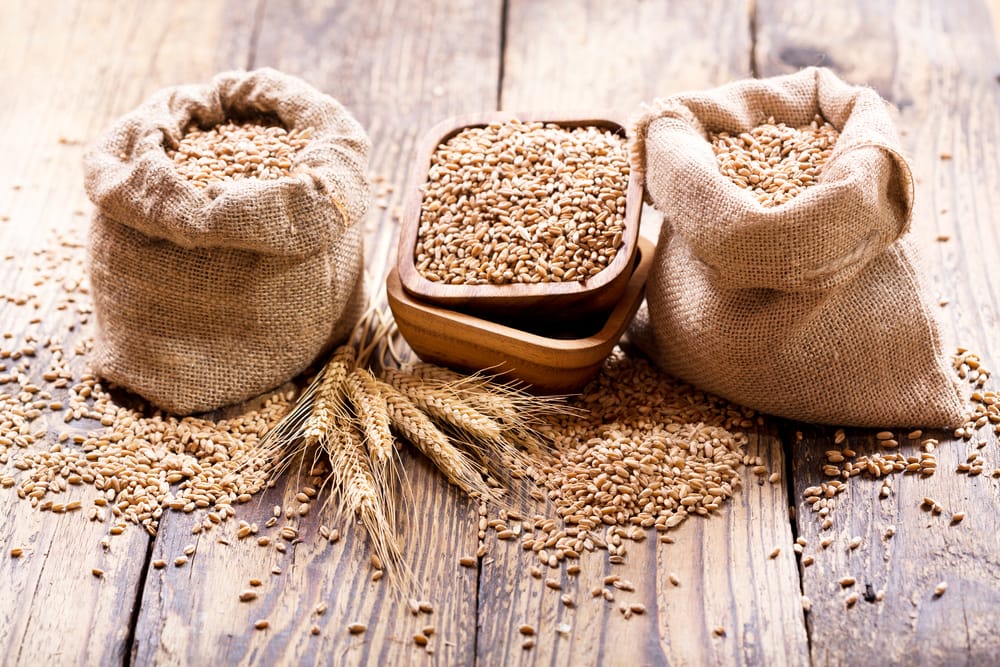Contents:
Medical Video: Vitamin B12 Deficiency Symptoms That Should Never Be Ignored
The body needs enough vitamins to function properly. But to do that, you need to take a variety of different vitamins so that your body can do many different tasks.
Knowing what is the most important list of vitamins and minerals can ensure you can meet your own needs to reap the benefits of the most optimal vitamins for your health. Long story short, lack of vitamins can make you more vulnerable to falling ill.
List of vitamins and minerals needed by the body
Vitamin A
Vitamin A is a type of fat-soluble vitamin found in meat, liver, dairy products and eggs, fruits, and green vegetables. On the other hand, you can also cover your daily vitamin A intake from multivitamin supplements.
The benefits of vitamin A are often associated with eye health, but the micronutrients contained in vitamin A also play an important role in supporting the immune system. Adequate body needs for vitamin A can help reduce the risk of prostate and lung cancer, maintain healthy skin, and maintain bone growth and strength. Vitamin A also helps the heart, lungs, kidneys, and other organs work well.
Vitamin B complex
Vitamin B complex is a group of vitamins consisting of eight types of B vitamins: B1 (thiamine), B2 (riboflavin), B3 (niacin), B5 (pantothenic acid), B6, B7 (biotin), B9 (folate), and B12. Basically, every micronutrient in a complex B vitamin helps the body convert food to energy.
Taking a complex multivitamin B can help treat or prevent certain health problems, including anxiety disorders, depression, fatigue, heart disease, premenstrual pain, and skin problems such as acne. In addition, many people take this vitamin supplement to increase energy, support brain health, improve mood, sharpen memory, reduce stress, stimulate the immune system, and improve hair and skin health.
Vitamin C
Vitamin C is a type of water soluble vitamin that plays an important role in the growth and repair of cells in the bones, teeth and skin. Vitamin C also protects your body from various infections because of the benefits of vitamin C which maintains the function of the immune system. In addition, vitamin C works as an antioxidant that helps prevent cell damage from free radicals so that it can reduce the risk of a number of cancers - including cancers of the mouth and throat, esophagus, stomach and breast cancer.
Although serious cases of vitamin C deficiency are rare, there are still many people who may not be able to meet the needs of vitamin C because the human body cannot produce vitamin C independently. For example, people who smoke. Smoking decreases the amount of vitamin C in the body, so smokers are at an increased risk for vitamin C deficiency.
That's why it's important for you to get enough vitamin intake from healthy foods, such as oranges, broccoli, guava, and papaya. You can also cover your daily vitamin C intake from multivitamin supplements. The benefits of vitamin C if taken long-term in the form of supplements can also protect you from cataracts.
Vitamin D3
Unlike vitamin C, Vitamin D3 is made by the body naturally when the skin is exposed to sunlight. But many people don't get enough of this nutrition. While the body uses sunlight to make vitamin D, intake can not be enough if you live in a cold area or don't spend a lot of time in the sun. That's why it's also important to get a supply of vitamin D from food - such as salmon, mackerel, egg yolks, and milk - and multivitamin supplements.
Adequate intake of vitamin D is important to help the body accelerate the absorption of calcium and phosphorus to build and maintain strong bones. The benefits of vitamin D also include treating and preventing bone disorders (such as rickets, osteomalacia, and osteoporosis). In addition, adequate intake of vitamin D provides a number of protective effects against several diseases such as cancer and type 1 diabetes. Multivitamin D supplements can also reduce the risk of non-spinal fractures.
Vitamin E
Vitamin E is the key to healthy skin and eyes. You can get enough vitamin E intake by eating a variety of foods including vegetable oils, nuts, green vegetables and enriched finished food products. You can also try to meet your daily vitamin E needs from multivitamins.
In the body, vitamin E acts as an antioxidant that helps protect cells from damage caused by free radicals. The body also needs vitamin E to improve the immune system so that it can fight bacteria and viruses. The benefits of vitamin E are found to be able to widen blood vessels and maintain blood clots.
But studies that looked at the benefits of vitamin E to prevent cancer, heart disease, diabetes, Alzheimer's disease, cataracts, and other conditions have not found convincing results. The benefits of vitamin E so far have only been proven to be true in people who suffer from deficiency. However, cases of vitamin E deficiency are rare. People who are on a low-fat diet may not have enough vitamin E.
Selenium
Selenium is an important mineral that is important for the sharpness of cognitive function, a healthy immune system, and fertility for men and women. Selenium is found in various foods, such as rice, eggs, Brazil nuts, seafood, and meat organs.
This mineral is involved in the production of prostaglandins in the body, which can reduce inflammation associated with rheumatism. In the body, selenium works with vitamin E as an antioxidant to prevent the formation of free radicals so that it can reduce the risk of skin cancer and prevent sunburn. A study from the Netherlands also linked adequate selenium intake to a lower risk of prostate cancer.
Iodine
Iodine is a mineral that is needed in your daily diet to maintain thyroid function and cell metabolism. Low iodine intake can cause goiter, abnormal swelling in the neck area. Hypothyroidism is another potential consequence of low iodine intake, causing a collection of symptoms including fatigue, weight gain, intolerance to cold temperatures, and constipation.
Although iodized salt products are present as a fairly effective way to meet daily iodine needs, an estimated 2 billion people worldwide are still at risk of iodine deficiency. To prevent this, you can get a daily intake of iodine by eating seafood, cheese and eggs. A number of multivitamins on the market have also been equipped with iodine.
Do not carelessly take multivitamin supplements
It has been proven many times that just consuming one specific nutrient in the form of a supplement will not provide the same health benefits as consuming nutrients from the food as a whole.
Therefore, your first focus is to always try to get your daily vitamin and mineral needs from food. Only then if you have applied a healthy diet but still feel less, it's okay to take a multivitamin once a day as a supplement.












